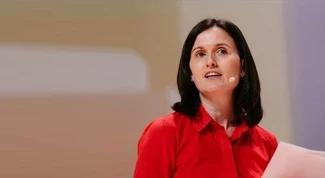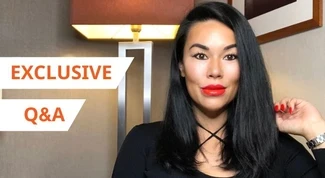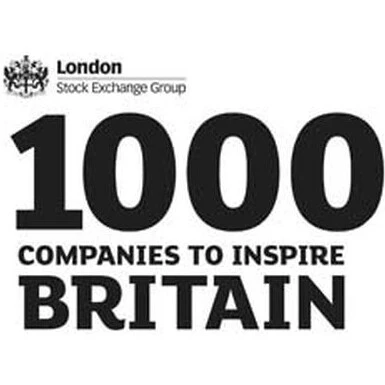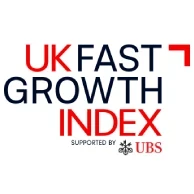Dr Sally Uren, esteemed CEO of Forum to the Future, sat down with our director, Jack Hayes, to discuss how businesses can join the fight against climate change. A popular sustainability speaker, Sally was named in the 100 UK Leading Environmentalists by Forbes in 2020, a feat that reflects her passion for our planet.
In this insightful Q&A, learn why Sally is considered a global authority on climate action and corporate sustainability.
Are businesses doing enough to tackle climate change? Hear Sally’s thoughts in our interview below.
Do you believe leading businesses and brands are doing enough to combat climate issues?
Jack: Sustainability is a topic I am personally really passionate about. As a sustainability speaker and industry professional, do you think businesses are doing enough to combat climate issues?
Sally: “No, they’re not. Nobody is.
“Why not? Partly because of the economic constraints that we’re in, and the economy that is fuelled to a large extent by short-term profit maximisation. And so, whilst there is a really strong business case for sustainability, you may need upfront investment in, for example, solar panels or other renewable types of energy. You may need to enter long-term contracts with your supplier and actually commit more resources upfront as a way of building resilience into your supply chain.
“If you are having to meet really short term demands on profitability, then the longer-term investment becomes harder even though you can show the rate of return. So, one of the biggest barriers is this kind of drive for short-term profit maximisation.
“So, that’s definitely one barrier, the way that capital markets work. And then I think there’s another barrier which is much more human, which is, I just don’t think we’re ambitious enough. I think we’re just a bit too comfortable – we’ll just tweak things here, tweak things there.
“I think another barrier is what we would call ‘mindset’. So, there’s a lack of ambition and a lack of creativity. If we can be bold and ambitious, then I think you’ll see an acceleration.”
Where should businesses begin when embarking on a journey to become more sustainable?
Jack: Once a business has identified that it needs to do more to protect our planet, what is the first thing a company must do?
Sally: “The first thing I would do is – it sounds really boring, and it is a bit – but to do a materiality assessment, really understand, where are your big impact areas? Where can you make the biggest positive difference?
“Just take the time to do that properly. Don’t assume where your impact lies, because actually, you might not have that right. So just take the time to do a proper materiality assessment, find out where your biggest impact areas are, and how to really optimise the contribution that you make to the world around you.”
What are your top tips all businesses should adopt to improve their sustainability policies?
Jack: So, the business has taken that first step – they have done a materiality assessment and made the appropriate changes – what must they do next?
Sally: “First of all, focus on your big impact areas.
“Sometimes, sustainability policies don’t focus on where you can make the biggest difference. So, for retailers, there’s been a preoccupation with the plastic bag, which is not a material impact area. However, where and how you’re sourcing raw materials, really is a much bigger impact area, how you are helping your customers lead more sustainable lives through the use phase of products, is also much bigger than a carrier bag. Focus on those big material impact areas.
“Then the second is, be specific to your business. You see lots of sustainability policies where you could erase the title and switch them over – they’re a bit vanilla. A really good sustainability policy should be really specific to your business.
“Tip three is set targets, put targets in your policy. Science-based targets for climate are the targets for customers' reach with new products, for example, or revenue sales from sustainable products.
“And finally, be honest and authentic. Use your policy to talk openly and honestly about your progress.
“If you do those four things – focus on the material impact areas, include targets, make your policy specific and be honest and open about your progress – I think we’d see a general uptick in performance.”
In the last few years, we have seen a big move to large-scale brands bringing sustainability positions into the boardroom. What do you think has driven this?
Jack: You are also a highly influential business speaker and are regularly booked for corporate conferences. Have you witnessed businesses move towards a more sustainable future and if so, what do you think has driven this change?
Sally: “I think what has driven sustainability entering the boardroom is an understanding that this isn’t a peripheral agenda, that this agenda really does impact business prosperity.
“Also, people really care about it. Many employees now really are expecting their organisations to do the right thing with this agenda – all the change we’ve seen over the last few years has created a really compelling business case to take this issue seriously, that’s why I think it’s headed to the boardroom.
“The rate at which sustainability is entering into those conversations is pretty good. Again, in the pandemic, it’s increased. So last year, the number of organisations adopting science-based targets doubled during the pandemic.
“Is it fast enough? Probably the rate at which the conversation is heading into the boardroom is fast enough. What isn’t fast enough, though, is the response. We’re still seeing too much hand wringing dialogue, what we need are big, bold targets, and commitments to new business models, commitments to new ways of offering products into the marketplace.
“We need action.”
Book Sally Uren
Contact the Champions Speakers agency to enquire about Dr. Sally Uren for your event today. Simply call a booking agent on 0207 1010 553 or use our online contact form for more information.









